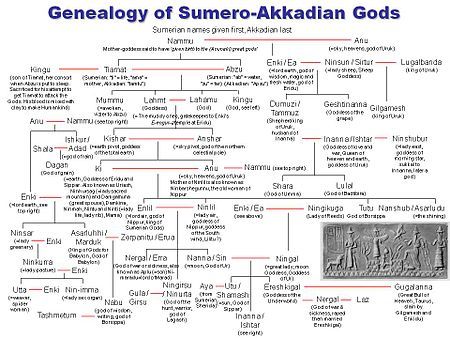After a considerable rethink on this issue I only come up with one possible interpretation for the meaning of “confusion” in this context (my original conclusion)—the creation of new systems or forms of knowledge. A perfect example of this "confusion is the religious view of the world (with all its superstitions) as opposed to the scientific view of the world (with its natural explications). We can see how “confusing” discussion can become because of this very problem right here in the discussion boards of BioLogos. The discourse on demonic possession is a prime example of how “confusion” can impair advancement to new levels of understanding (the Tower of Babel) because of alternative ways of explaining the same phenomenon (demonic possession — mental illness).
"Go to, let us go down, and there confound their language, that they may not understand one another’s speech.
So the LORD scattered them abroad from thence upon the face of all the earth: and they left off to build the city" [Genesis 11:7-8].
If my interpretation of the account is correct, and I strongly believe it is, it wasn’t God and His Heavenly Host who “came down” and “confounded their language.” It was a conspiracy on the part of the religious leaders of the land. This makes full sense with scripture’s depiction of Babylon the Great and her final demise.
Because by correctly interpreting the symbolic meaning of Genesis 11 (confounding their language —religious superstition — sorcery) we can appreciate what is written in Revelation.
And upon her forehead was a name written, Mystery, Babylon The Great, The Mother Of Harlots And Abominations Of The Earth [Revelation 17:5 KJV].
“…for by thy sorceries were all nations deceived” [Revelation 18:23 KJV].
However, it is only through an understanding of the Neo-Babylonian political, secular, and religious system as described in the book of Daniel during the captivity that an accurate exegesis can be conducted connecting the dots of religion dogma to superstition and to sorcery.
The “confounding of language” described in Genesis 11 was performed by skilled magicians (occultists).
Deities
Sumerians believed in an anthropomorphic polytheism, or the belief in many gods in human form. There was no common set of gods; each city-state had its own patrons, temples, and priest-kings, however they were not exclusive. The gods of one city were often acknowledged elsewhere. Sumerian speakers were among the earliest people to record their beliefs in writing, and were a major inspiration in later Mesopotamian mythology, religion, and astrology.
Enlil, god of the north wind, in Nippur, husband of Ninlil, the south wind. King of the Sumerian gods, [he gave mankind the [spells and incantations] that the spirits of good or evil must obey], [Emphasis Mine]. Sumer - Wikipedia
This is the pantheon of the Sumero-Akkadian gods.

Let us not forget, the Biblical account tells us that Abram left Ur of the Chaldees, and followed the inner-voice of God to get away from the spiritual sickness of Babylon.
Now the LORD had said unto Abram, Get thee out of thy country, and from thy kindred, and from thy father’s house, unto a land that I will shew thee:
And I will make of thee a great nation, and I will bless thee, and make thy name great; and thou shalt be a blessing:
And I will bless them that bless thee, and curse him that curseth thee: and in thee shall all families of the earth be blessed [Genesis 12:1-3].
To me, God [Yahuwah] also exists. He is the inner-voice who spoke to Abraham, the one who gave Moses the Law, the giver of dreams and visions who provided Daniel and John with the outline for the future, and the God whom Jesus prayed to in the garden of Gethsemane. I also believe in God [Elohim] (the eternal animating force) the creator of heaven and earth. To me, the heavenly host are the stars in the night sky.
So Jon, you don’t believe in the existence of Satan and demons—but you believe in the existence of God and angels? We recently had a topic dedicated specifically to the white bearded man in the sky. Is this what you meant here, “To me, God does exist and so does His heavenly host.” White bearded man in the sky